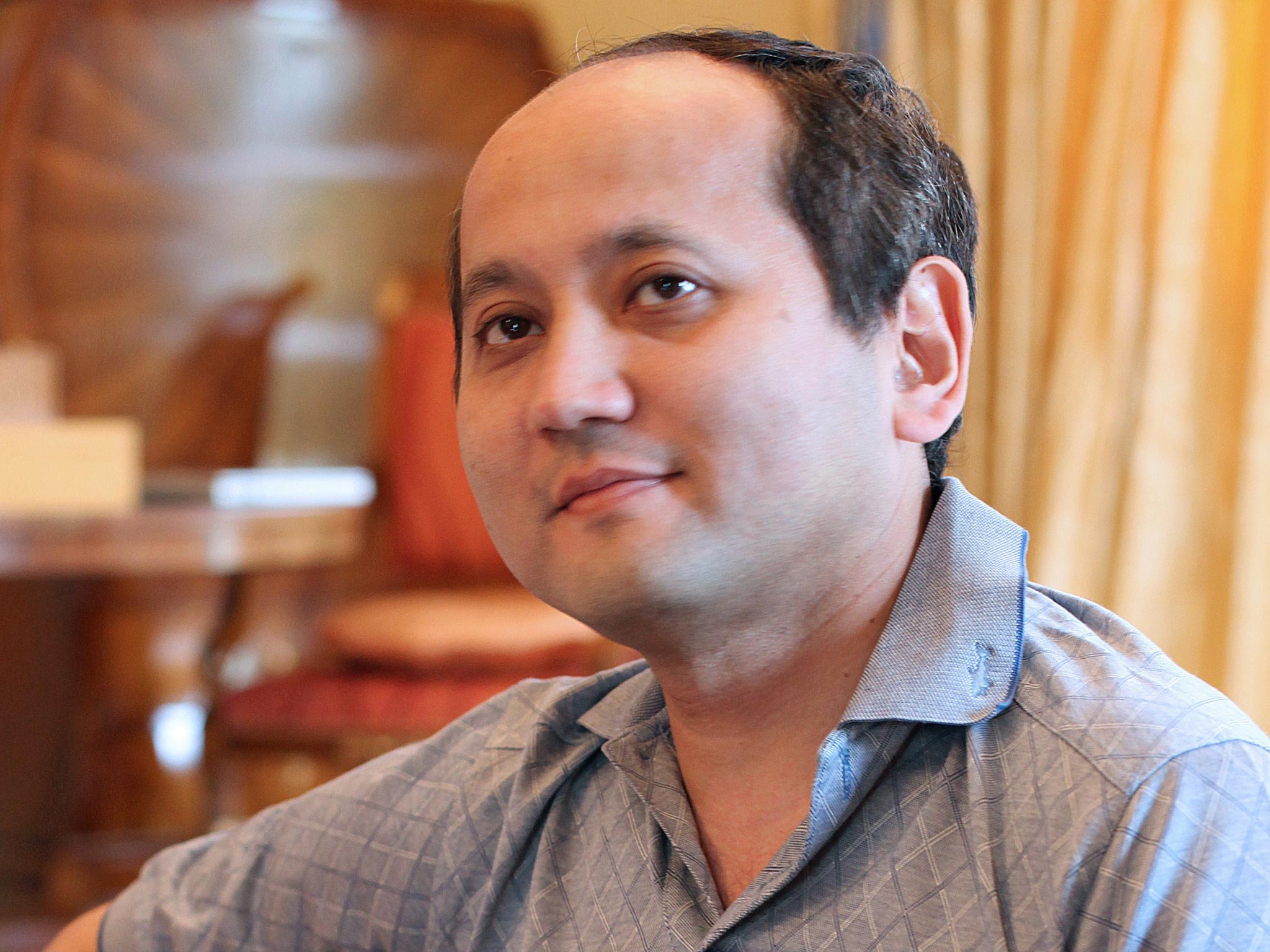Kazakh dissident loses UK refugee status after David Cameron’s trade mission - sparking claims the Government is attempting to curry favour with the oil-rich country
Lawyers for Mukhtar Ablyazov say the PM viewed the case as a stumbling-block to closer ties with the repressive central Asian republic

The Home Office is revoking the refugee status of a prominent Kazakhstan dissident, it has emerged, prompting claims that the Government is attempting to curry favour with the oil-rich but repressive central Asian republic.
The Kazakh regime has accused Mukhtar Ablyazov, a former minister and bank chief who is in custody in France, of money-laundering and fraud and has demanded his extradition.
His lawyers have now disclosed that the Home Office contacted him three months ago to tell him his asylum status was being cancelled.
They claimed David Cameron, who last year became the first British Prime Minister to visit Kazakhstan, viewed the case as a stumbling-block to closer ties with the country.
The Labour MP Jeremy Corbyn, a sponsor of Campaign Kazakhstan, has called for an explanation from Theresa May, the Home Secretary, for her decision.
He said: “I would like to know the justification for why it is happening and that it is not just a process of appeasing a government whose human rights record is very bad, notwithstanding its vast mineral wealth and strategic importance for Afghanistan.”
Both the Home Office and Downing Street declined to discuss the case.
Mr Ablyazov, who was previously the chairman of Kazakhstan’s BTA Bank, fled the country in 2009 and came to Britain where he was granted political asylum two years later. BTA, which has been nationalised, pursued him in the High Court, claiming he had embezzled more than $6bn (£3.5bn) to fund a lavish lifestyle, accusations he strongly denies.
In February 2012, a judge in London found him guilty of contempt of court and sentenced him to 22 months in jail. By then he had left Britain and was tracked down 18 months later to a villa in France.
Peter Salhas, a lawyer for the Ablyazov family, accused the Home Office of violating international rules protecting refugees. “After properly granting refugee status to Mr Ablyazov in 2011, the United Kingdom now seems to have fallen victim to an insidious misinformation campaign,” he told the Financial Times.
“The decision taken is not only unlawful and ungrounded, but the Home Office is not revealing the truth about it.”
Mr Cameron travelled last summer to Kazakhstan, which he praised as “a dynamic country that is poised to become a high-income country by the end of this decade” with a delegation of British firms including BP, Shell and Rolls-Royce. During the visit he signed trade deals worth £700m.
He said he had raised the issue of human rights in Kazakhstan with President Nursultan Nazarbayev, including “credible allegations” that its regime was guilty of torture.
In a statement from his cell, Mr Ablyazov said: “I have the deepest respect, Mr Cameron and Ms May, for what your country and your institutions stand for. Please recognise that you and your courts are being manipulated by a kleptocratic dictator.”
Subscribe to Independent Premium to bookmark this article
Want to bookmark your favourite articles and stories to read or reference later? Start your Independent Premium subscription today.

Join our commenting forum
Join thought-provoking conversations, follow other Independent readers and see their replies